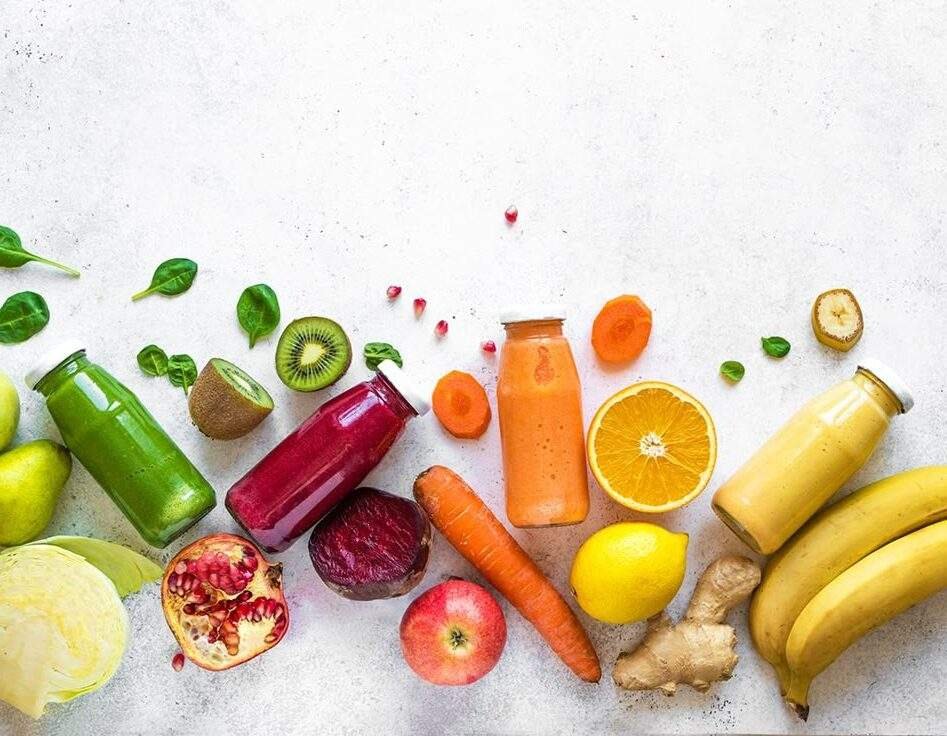YoYour gut health plays a crucial role in your overall well-being, affecting digestion, immunity, mental health, and even weight management. An unhealthy gut can lead to issues like bloating, indigestion, and inflammation. By making simple lifestyle and dietary changes, you can restore balance to your gut microbiome and enjoy better health.
1. Eat a Fiber-Rich Diet for Better Gut Health
Fiber is essential for a healthy gut as it promotes digestion and nourishes beneficial gut bacteria. Foods rich in fiber include:
- Whole grains (oats, quinoa, brown rice)
- Fruits (apples, bananas, berries)
- Vegetables (broccoli, spinach, carrots)
- Legumes (lentils, chickpeas, beans)
A high-fiber diet helps regulate bowel movements, reduces constipation, and keeps your digestive system functioning optimally. Additionally, fiber acts as a food source for healthy gut bacteria, promoting their growth and diversity.

2. Incorporate Probiotic-Rich Foods
Probiotics are live bacteria that help maintain gut balance. Foods rich in probiotics include:
- Yogurt with live cultures
- Kefir
- Sauerkraut
- Kimchi
- Miso
- Kombucha
Probiotics support digestion and may help with conditions such as irritable bowel syndrome (IBS) and inflammatory bowel disease (IBD). Incorporating probiotic-rich foods into your diet can help improve gut microbiome diversity and overall digestive function.
3. Eat More Prebiotic Foods
Prebiotics are non-digestible fibers that feed beneficial gut bacteria. Great sources of prebiotics include:
- Garlic
- Onions
- Leeks
- Asparagus
- Bananas
- Apples
Prebiotics support gut bacteria growth, ensuring a well-balanced gut microbiome. A combination of both prebiotics and probiotics can create a strong foundation for digestive health.
4. Reduce Processed Foods and Sugar
Highly processed foods and excess sugar can harm gut bacteria and promote inflammation. Limit consumption of sugary drinks, fast food, and artificial sweeteners. A diet high in processed foods can lead to an imbalance in gut bacteria, increasing the risk of metabolic disorders and digestive problems.

5. Stay Hydrated
Drinking plenty of water is essential for digestion and maintaining a healthy gut lining. Aim for at least 8 glasses of water per day. Proper hydration supports the breakdown and absorption of nutrients while preventing constipation and promoting the smooth movement of food through the digestive tract.
6. Get Enough Sleep
Poor sleep can disrupt the gut microbiome, leading to digestive issues. Aim for 7-9 hours of quality sleep per night to support gut health. Sleep deprivation has been linked to changes in gut bacteria composition, which can negatively affect digestion and overall well-being.
7. Manage Stress Levels
Chronic stress negatively impacts gut bacteria and digestion. Try stress-reducing activities such as:
- Meditation
- Yoga
- Deep breathing exercises
- Spending time in nature
When stress levels are high, the body produces more cortisol, which can negatively impact digestion and gut bacteria diversity. Practicing mindfulness and relaxation techniques can contribute to a healthier gut environment.
8. Exercise Regularly
Physical activity promotes healthy digestion and increases beneficial gut bacteria. Aim for at least 30 minutes of moderate exercise, such as walking, cycling, or strength training, most days of the week. Regular exercise has been shown to enhance gut microbiome diversity, improve digestion, and reduce inflammation.
9. Avoid Overuse of Antibiotics
While antibiotics are necessary for treating infections, overuse can destroy beneficial gut bacteria. Use them only when prescribed and consider taking probiotics afterward. Unnecessary antibiotic use can disrupt the balance of gut bacteria, leading to digestive discomfort and long-term health issues.
10. Try Fermented Foods and Supplements
Fermented foods help introduce healthy bacteria into the gut. If your diet lacks these, probiotic supplements may be beneficial. Fermented foods, such as kimchi, miso, and tempeh, contain naturally occurring probiotics that support digestive function and overall gut health.
The Role of Gut Health in Mental Well-Being
The gut-brain connection is a vital aspect of overall health. A balanced gut microbiome can positively impact mood, cognitive function, and stress levels. Consuming probiotic and prebiotic-rich foods may help regulate neurotransmitters, reducing anxiety and depression symptoms. Recent studies suggest that gut bacteria influence brain function through the production of neurotransmitters such as serotonin and dopamine, which play a key role in mental well-being.

Signs of an Unhealthy Gut
Recognizing gut health issues early can help prevent more serious complications. Symptoms of an imbalanced gut include:
- Bloating
- Constipation
- Diarrhea
- Fatigue
- Frequent infections
Making gradual dietary and lifestyle adjustments can support gut healing and restore balance. Paying attention to digestive discomfort and adopting healthier habits can lead to long-term improvements in gut function.
Additional Tips for Gut Health
Besides diet and lifestyle changes, reducing alcohol consumption can help maintain a balanced gut microbiome. Excessive alcohol intake may disrupt gut bacteria and contribute to inflammation. Moderation is key to keeping your digestive system in good condition.
Consuming a variety of whole foods, reducing stress, and prioritizing sleep can create a strong foundation for digestive health. Paying attention to your body’s signals and making conscious dietary choices will contribute to a thriving gut microbiome.
Conclusion
Improving gut health requires a holistic approach that includes a balanced diet, lifestyle changes, and mindful habits. By incorporating these 10 tips, you can enhance digestion, boost immunity, and support overall well-being. Start small and make gradual changes to experience long-term gut health benefits!
A healthy gut contributes to increased energy levels, improved digestion, and a stronger immune system. Making intentional choices about what you eat and how you live can result in lasting improvements to your digestive health and overall quality of life.
Also Read: Irresistible Caramel Pudding Recipe – Creamy, Rich & Easy to Make!












